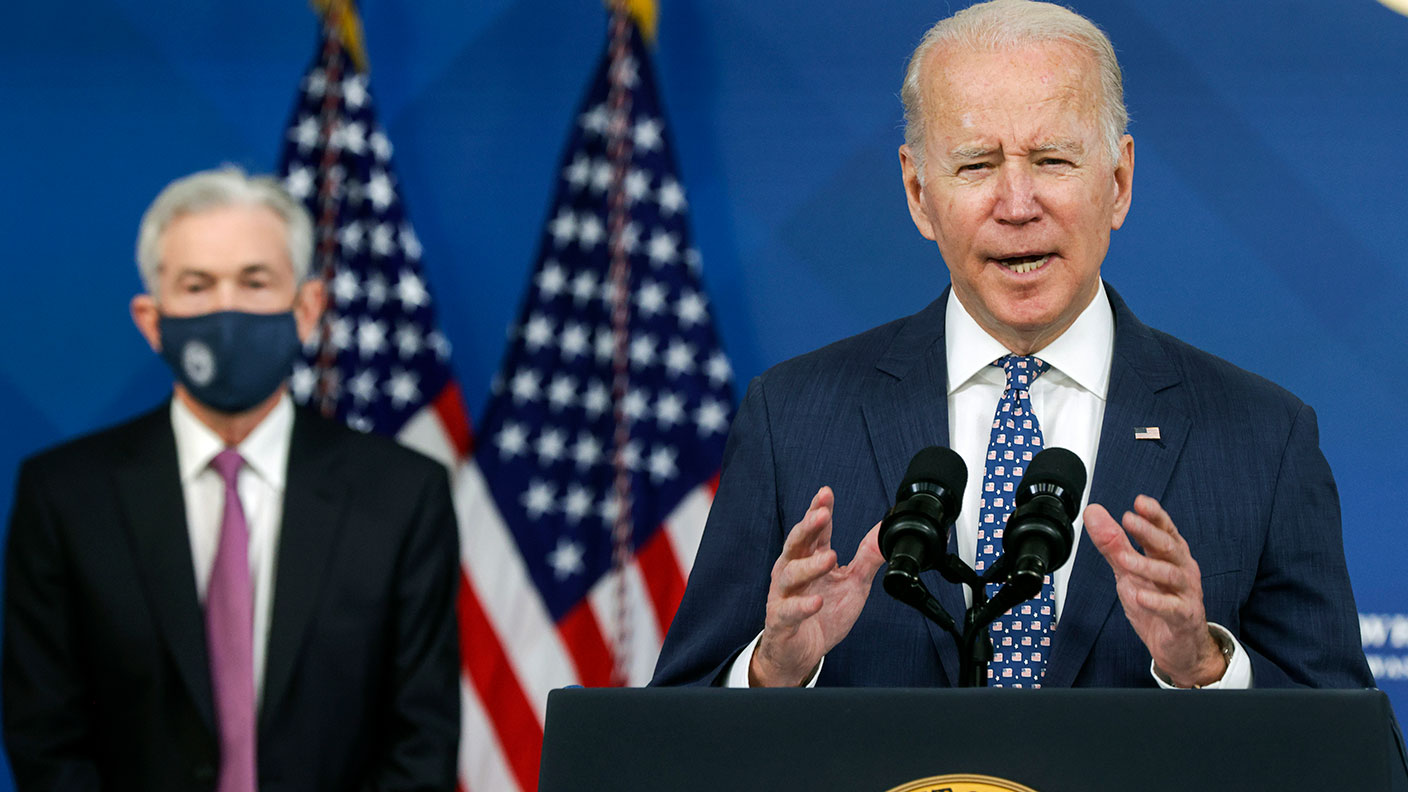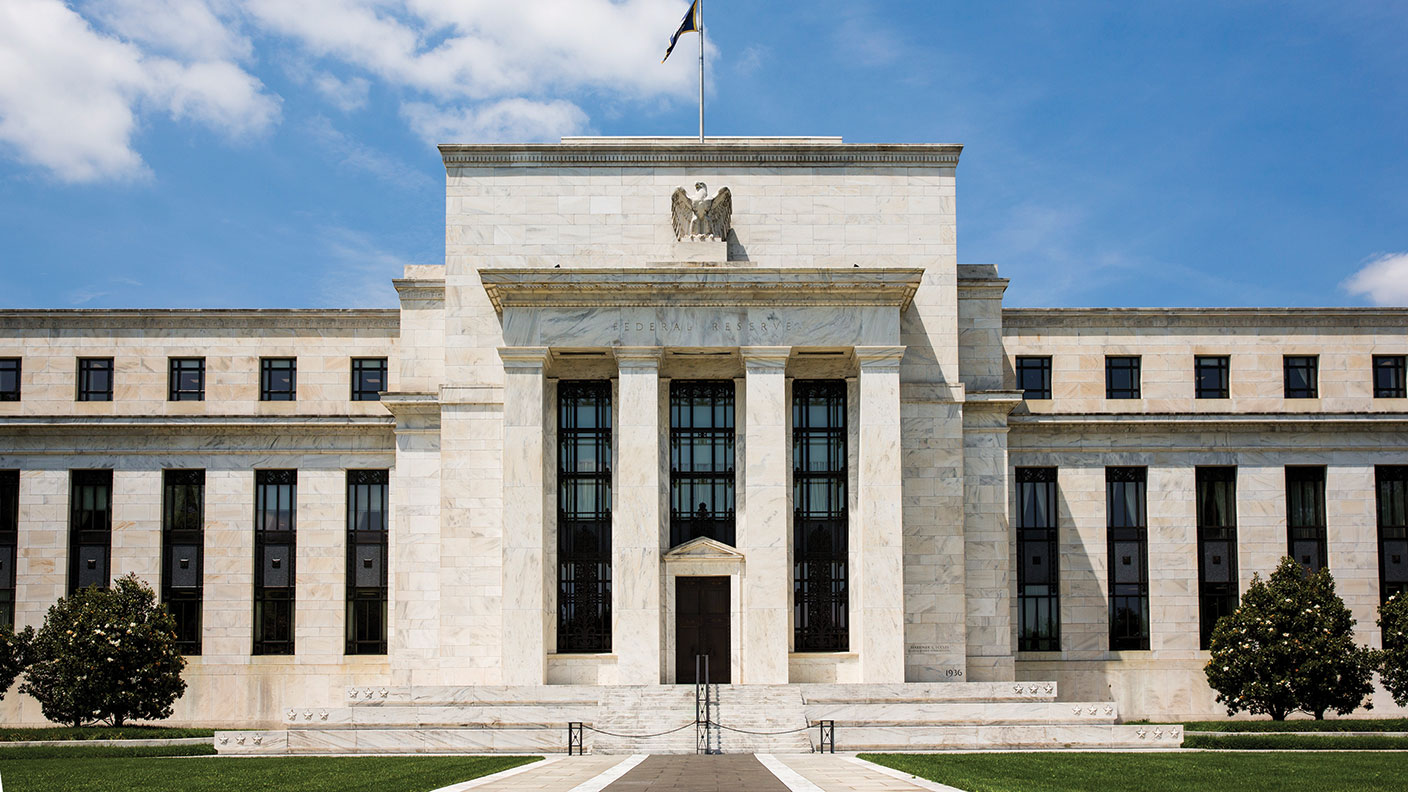What do Turkey’s tumbling lira and America’s oil raid have in common?
Joe Biden’s confirmation that Jerome Powell will stay on as Fed chair has sent jitters in markets from Turkey to Texas. John Stepek explains what’s going on.


Get the latest financial news, insights and expert analysis from our award-winning MoneyWeek team, to help you understand what really matters when it comes to your finances.
You are now subscribed
Your newsletter sign-up was successful
Want to add more newsletters?

Twice daily
MoneyWeek
Get the latest financial news, insights and expert analysis from our award-winning MoneyWeek team, to help you understand what really matters when it comes to your finances.

Four times a week
Look After My Bills
Sign up to our free money-saving newsletter, filled with the latest news and expert advice to help you find the best tips and deals for managing your bills. Start saving today!
Quick! It’s your last chance to sign up for the MoneyWeek Wealth Summit before it goes out tomorrow! Get your ticket here if you haven’t already – you won’t want to miss this.
The Turkish lira collapsed yesterday. Gold has been tripped up in its short-lived sprint for glory above $1,800 an ounce. The Nasdaq index in the US has been knocked off its most recent high in an unceremonious manner.
And US president Joe Biden just raided America’s emergency stash of oil.
MoneyWeek
Subscribe to MoneyWeek today and get your first six magazine issues absolutely FREE

Sign up to Money Morning
Don't miss the latest investment and personal finances news, market analysis, plus money-saving tips with our free twice-daily newsletter
Don't miss the latest investment and personal finances news, market analysis, plus money-saving tips with our free twice-daily newsletter
What do all of these things have in common?
They’re all about inflation and interest rates.
The “safe” choice for Fed boss still rattled markets
At the start of this week, US president Joe Biden made the decision to keep Jerome Powell as the head of the Federal Reserve – America’s central bank – for the next four years. This appears to have rattled markets into believing that interest rates are going to go up faster than they’d thought.
Why’s that? It’s not entirely clear, but I have a view that I’m happy to share with you: this isn’t so much about Powell as about Biden and the overall direction of travel.
You see, some people thought that Biden was going to drop Powell (who votes Republican, apparently) for Lael Brainard, who is also on the Fed. Brainard is seen as being more “dovish” than Powell. In a narrow sense – in terms of her voting record – it’s not clear that this is true. However, she has certainly talked more about the likes of yield curve control and other “innovative” central bank policies.
So unless you want to be really pedantic, you could certainly argue that a shift to Brainard would have been evidence that a) Biden was confident of getting his own way and (arguably) b) that monetary policy would probably err on the “dovish” side.
So while Powell getting the job again makes sense in lots of ways – markets tend to be even more jittery around a new Fed boss – it also implied that monetary policy isn’t going to be as free and easy as it might have been.
I’m not sure this makes sense (I suspect Powell will err on the “dovish” side as well) but markets are all about expectations, and they were expecting someone even more inclined to print money at the drop of a hat. They didn’t get that, so they started betting that interest rates will go higher.
As a result, stuff that doesn’t like higher interest rates – gold, interest-rate sensitive growth stocks that don’t make much by way of profits – sold off, while the US dollar headed higher.
One of the most obvious casualties so far has been the Turkish lira. The lira has been in a long-term downtrend for over a decade now. But yesterday things became extreme: the currency lost more than 15% of its value against the dollar in a single day.
That’s more like the sort of move you’d expect in a cryptocurrency, and indeed the ZeroHedge blog is now referring to the lira as “erdocoin”.
Now, Turkey is almost uniquely badly governed, and has been for sufficiently long enough to allay fears of any systemic exposure. So this isn’t necessarily symptomatic of a wider emerging-market problem. But it does demonstrate what happens to the most fragile assets when rates even hint at moving.
Central banks are in a really tight spot
What does all of this mean for investors?
I think what you should take from all this is not so much that interest rates are going to rise sharply, but that the world really isn’t in much of a state to cope with sharply higher rates.
Central banks, and the Fed in particular, know this, and are caught in a very difficult position. Put bluntly, the world is carrying too much debt to be able to cope with significantly higher interest rates. But inflation is still an issue. So what can be done?
Well, on that front, the other big news yesterday was Biden’s attempt to cap oil prices by releasing 50 million barrels of oil from its Strategic Petroleum Reserve. This emergency stash of oil was put together in the 1970s in response to that particular crisis.
Why? The US is keen to drive down oil prices, because if there’s one thing consumers (ie, voters) really hate, it’s higher prices at the pump. And the threat to release reserves actually did help to put a dent in crude prices over the last week or so.
But as so often happens with these things, it was a case of “buy the rumour, sell the news” (or the other way about in this instance); Brent bounced sharply.
I’m not going to delve into the rationale for the release here because while it’s mildly interesting, it’s not especially important to today’s point. Which is this: regardless of whether this works or not (I very much doubt it will), it’s an indication of how governments are likely to respond to troublesome rising prices.
As the FT’s Lex column points out, the strategic reserve has previously only been accessed on three occasions. “Two related to wars. The third came in response to Hurricane Katrina. The only emergency Biden faces is a political one.”
This is the key. Biden (and politicians generally) cannot ignore inflation. But nor can they allow the raising of interest rates which would trigger the recession that would be required to control inflation at this stage.
So you can expect more of this sort of gesture – short-term fixes, direct and indirect price controls, capital controls – before we get to the stage where rate hikes are deemed politically acceptable.
One reason this will probably work for a little while is because you’d expect inflation to moderate at some point, possibly fairly soon, as you get the ripples from the first wave subsiding (before the next wave comes along).
At that point, you might get a declaration of victory, a sense that central banks don’t need to act as quickly as feared, and a resurgence for markets. At least until inflation comes bounding back later.
Anyway, we’ll see what happens. Suffice to say I think the market’s sudden fear of higher rates will subside given just a little bit of encouragement. That probably won’t save the lira, right enough.
Get the latest financial news, insights and expert analysis from our award-winning MoneyWeek team, to help you understand what really matters when it comes to your finances.

-
 Can mining stocks deliver golden gains?
Can mining stocks deliver golden gains?With gold and silver prices having outperformed the stock markets last year, mining stocks can be an effective, if volatile, means of gaining exposure
-
 8 ways the ‘sandwich generation’ can protect wealth
8 ways the ‘sandwich generation’ can protect wealthPeople squeezed between caring for ageing parents and adult children or younger grandchildren – known as the ‘sandwich generation’ – are at risk of neglecting their own financial planning. Here’s how to protect yourself and your loved ones’ wealth.
-
 How a dovish Federal Reserve could affect you
How a dovish Federal Reserve could affect youTrump’s pick for the US Federal Reserve is not so much of a yes-man as his rival, but interest rates will still come down quickly, says Cris Sholto Heaton
-
 New Federal Reserve chair Kevin Warsh has his work cut out
New Federal Reserve chair Kevin Warsh has his work cut outOpinion Kevin Warsh must make it clear that he, not Trump, is in charge at the Fed. If he doesn't, the US dollar and Treasury bills sell-off will start all over again
-
 'Investors should brace for Trump’s great inflation'
'Investors should brace for Trump’s great inflation'Opinion Donald Trump's actions against Federal Reserve chair Jerome Powell will likely stoke rising prices. Investors should prepare for the worst, says Matthew Lynn
-
 'Governments are launching an assault on the independence of central banks'
'Governments are launching an assault on the independence of central banks'Opinion Say goodbye to the era of central bank orthodoxy and hello to the new era of central bank dependency, says Jeremy McKeown
-
 Do we need central banks, or is it time to privatise money?
Do we need central banks, or is it time to privatise money?Analysis Free banking is one alternative to central banks, but would switching to a radical new system be worth the risk?
-
 Will turmoil in the Middle East trigger inflation?
Will turmoil in the Middle East trigger inflation?The risk of an escalating Middle East crisis continues to rise. Markets appear to be dismissing the prospect. Here's how investors can protect themselves.
-
 Federal Reserve cuts US interest rates for the first time in more than four years
Federal Reserve cuts US interest rates for the first time in more than four yearsPolicymakers at the US central bank also suggested rates would be cut further before the year is out
-
 The Bank of England can’t afford to hike interest rates again
The Bank of England can’t afford to hike interest rates againWith inflation falling, the cost of borrowing rising and the economy heading into an election year, the Bank of England can’t afford to increase interest rates again.